Grazing in Darfur, a recurring conflict
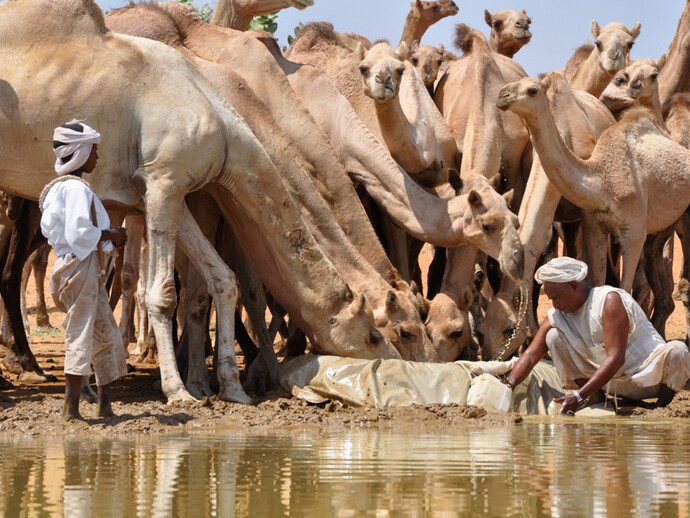
Nomads water their herd at a rainwater hole, El Ayara, North Kordofan (Enikö Nagy)
DABANGA SUDAN – February 17, 2023
The release of livestock on farms during the agricultural winter season is one of the biggest concerns that haunt farmers and villagers in Darfur as it damages large agricultural areas of crops each year and leads to frictions between herding and farming communities that not only result in the death and injury of dozens of people but have the potential to turn into large-scale, even more deadly tribal conflicts.
In this feature article, the Radio Dabanga team explores the tensions around early grazing in North Darfur and current attempts to improve security, peace, and stability.
In most parts of North Darfur, the agricultural winter season usually begins in August and ends in early February. As the rainy season ends in September and the herders need fresh pastures, they let their camels and cattle graze on farmlands that have not yet been harvested. Each year, farmers complain about livestock destroying their crops.
It has been officially agreed that releasing livestock on farmlands is allowed after February 7, when the harvest is completed. Yet, Radio Dabanga heard about plenty of cases in which this agreement is violated.
No harvest due to grazing
Shangil Tobaya in Dar El Salam locality, roughly 75 km south of North Darfur capital El Fasher has thousands of acres of arable land. There are also two camps for the displaced, Naivasha and Shaddad.
The majority of the displaced in these camps are from the Fur and Zaghawa tribes. The Fur are sedentary farmers and rely mainly on sorghum and millet cultivation during the rainy seasons. The Zaghawa are agro-pastoralists. Both tribes belong to the black African groups that were heavily repressed by the regime of Omar Al Bashir during the war and the Darfur genocide.
Non-Arab African tribes were targeted by predominantly nomadic Arab herding tribes. Since the famine of 1984-1985, impoverished Arab herders banded together to form groups of armed bandits. Since 2003, when rebel movements violently opposed the regime of Omar Al Bashir (1989-2019), the authorities provided Arab youths with heavy weapons to form militia groups to fight the rebels. These militias were later integrated into what became the Rapid Support Forces (RSF), which still play a more than controversial role in Darfur.
The war in Darfur displaced millions of people, often farmers, from their villages and settlements. They still cultivate a lot of their land whilst being housed in camps for the displaced.
Farmers in Shangil Tobaya told Radio Dabanga that they do not expect any crops to be harvested this year due to the herders’ violation of the February 7 agreement. “They let their livestock onto the farmland at gunpoint early this season, which destroyed most of the crops.”
Omda (community leader) Ibrahim Adam told Radio Dabanga from Shangil Tobaya that he had received more than 100 complaints regarding the release of livestock onto farms between October and December.
The farmers said that the rainfall rates at the start of the season were promising, which prompted them to plant large areas with various types of crops. The crops fared well so there were hopes of abundant harvests and good productivity.
The farmers were surprised, however, by the early release of livestock by the herders in the area.
Farmer Ahmed Abakar told Radio Dabanga that “the agricultural season this year started relatively successful compared to last year, but the early grazing of livestock on farms has led to a failed season”.
‘The agricultural season this year started relatively successful compared to last year, but the early grazing of livestock on farms has led to a failed season’ – farmer Abakar
“The rainy season was successful, which you could see from the crops, such as beans, sesame, and watermelons sold for affordable prices at the markets in Dar El Salam,” he said.
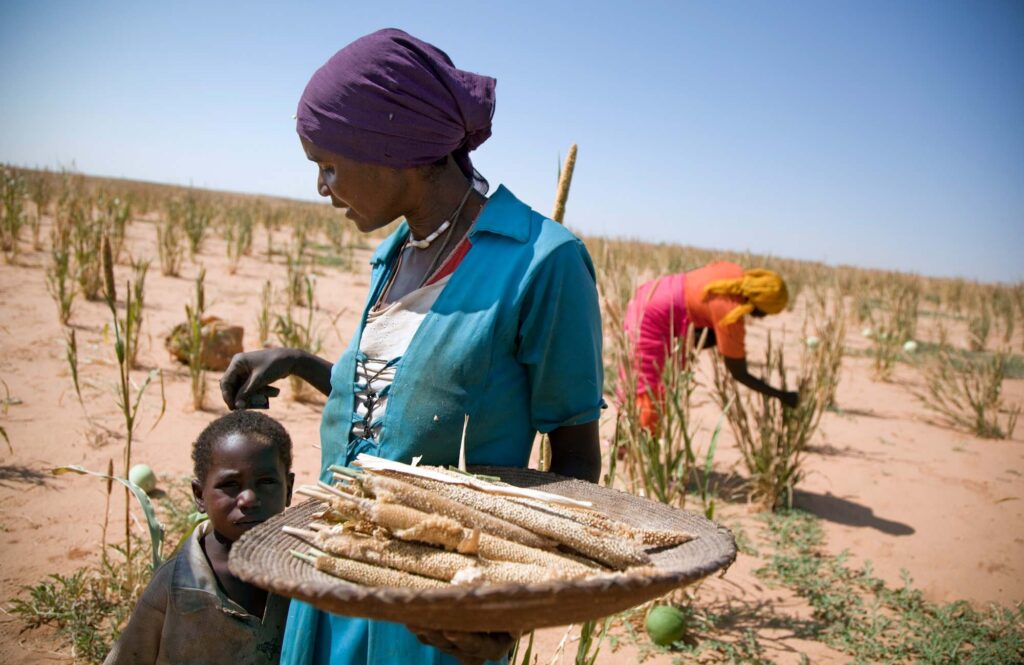
Widespread phenomenon
Shangil Tobaya is not the only area with these problems. Omda Adam Bosh in the neighbouring Tawila locality said that farmers are suffering from the same problems.
Omda Zakaria reported from the Shaddad camp for the displaced, which hosts more than 12,000 families, that their farms were completely destroyed by livestock as well.
The herders also claim the land, displaced farmer Fatima Ahmed told Radio Dabanga from the Shaddad camp.
She said that herdsmen entered her farm when she was tending her crops last month. When she asked them to leave, they informed her that they had bought the farm and in turn asked her to leave.
Omda Hashem Hussein, head of the civil court in Dar El Salam, said that the locality is “in a state of tension” due to the frictions that occur between herdsmen and farmers over the early release of livestock on farmlands.
The judge said that he dealt with more than 16 cases before the end of last year, but that “most were resolved with joudiya (traditional arbitration) without calling for official court trial sessions”.
He urged the authorities to open pasture routes for the pastoralists and provide improved seeds for the farmers. “A special committee should be established to protect the agricultural season, and joint forces should be deployed to protect the committee in order to carry out its role.”
Early grazing is indeed not the only threat farmers face. Farmer Abakar echoed the judge’s call by saying that, apart from the pressing need for better security, the farmers need improved seeds and help to combat the many pests threatening their crops.
Safety concerns and security forces inaction
Sheikh Idris Ali Abdallah said that many people living in the neighbourhood of Sangar fled attacks by militant herders. “The area became almost deserted because its residents sought refuge in safer areas to search for new means of livelihood.”
The community leader said that he received more than a thousand reports of destruction at farms since the start of the agricultural season, “but the North Darfur authorities did not move to protect the farmers”.
‘The North Darfur authorities did not move to protect the farmers’ – Sheikh Abdallah
Omda Ibrahim Adam from Shangil Tobaya told Radio Dabanga that, after receiving more than 100 complaints of early grazing, they filed numerous reports to the Darfur Joint Security Forces based in the area for the protection of the agricultural season, but to no avail.
He told Radio Dabanga that the army commander of the Shangil Tobaya district demanded the imposition of fees on farmers in order to pay for the garrison’s running costs and petty cash for the force so that it can carry out its role.
Ahmed Ishag complained about herders grazing their livestock more than once on his farm since the beginning of September. “Each time I filed a complaint at the police station, the officer apologised saying they are unable to seize the herders under the pretext of not having the necessary capabilities.
“They demanded the provision of fuel and petty cash,” he said. “When I said I was unable to provide the requirements, the complaint was registered, and my harvest was destroyed”.
The joint security forces stationed in the area are partly made up of the Rapid Support Forces whose predecessor, the Janjaweed, was largely responsible for the genocide against farmers and other Black communities in Darfur.
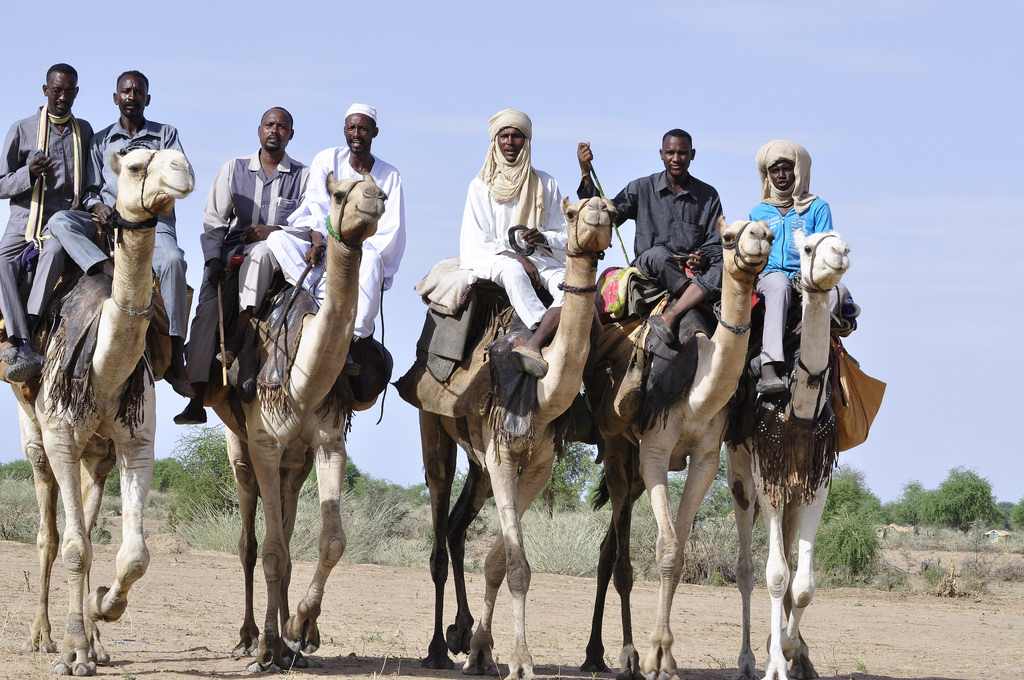
New Agricultural Season Protection Committee
Salah Ali Ibrahim, Director of the North Darfur Agricultural Sector and Rapporteur of the Agricultural Season Protection Committee in the state, explained that the committee was recently formed under the chairmanship of the directors of the Shangil Tobaya and Abu Zereiga districts in cooperation with local native administration leaders (both omdas and sheikhs).
The committee have received many complaints from farmers about herdsmen encroaching on their farms.
“An Agricultural Season Protection Team has been formed in the Shangil Tobaya district that resolves frictions between herdsmen and farmers, in cooperation with other security forces,” Ibrahim said and explained that they tried finding solutions to the matter.
“The team opened three pastures tracks for the pastoralists to cross through the area, but the herders continue to enter their livestock onto the farms.”
North Darfur Nomads and Herders Commission
North Darfur Nomads and Herders Commission member Ahmed Bahya told Radio Dabanga in December that the Commission sought to solve the problems between herders and nomads by organising workshops for both sides to determine land for grazing.
Bahya explained that a number of pasture lands were recently closed and distributed to the localities to become new residential areas.
“We managed to reopen four of the closed pasture tracks at the end of last year,” he said, allowing for more legal space for herders to let their cattle graze.
The commission has also received many complaints regarding livestock encroachment on farms, Bahya said.
He accompanied the Agricultural Season Protection Committee on visits to the affected areas to demand that herders remove the livestock from the farms. Fines are to be imposed as well.
The commissioner added that he had also formed two teams. The first team consists of native administration leaders who are to protect the pasture tracks. The second one consists of the directors of the localities, whose task is to find historical references to land and pasture rights and to sit with the Ministries of Infrastructure and Agriculture in order to restore the map.
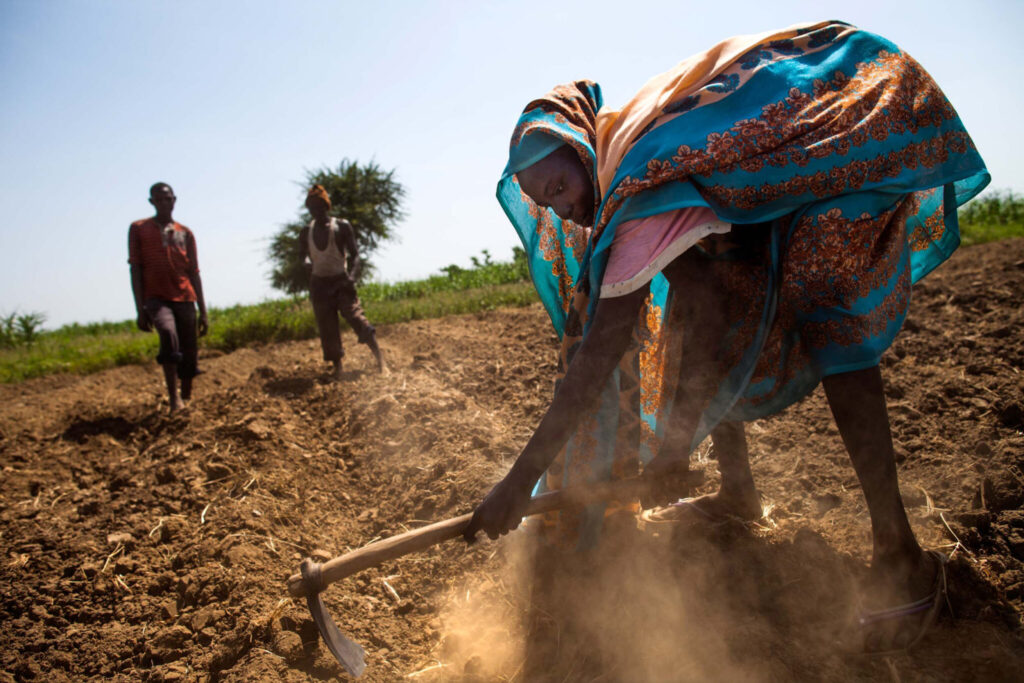
Coordination and modernisation
During an expanded meeting with the Agricultural Season Protection Committee in El Fasher in mid-January, Wali (Governor) of North Darfur Nimr Abdelrahman stressed the importance of continuing coordination and cooperation between the committee, government agencies, United Nations agencies, and other relevant international organisations to continue implementing programmes that would secure agricultural seasons and avoiding friction between herders and farmers.
According to the Sudanese News Agency (SUNA), Nimr drew attention to the importance of updating the Farmers and Herders Law and called for the continuation of organising joint workshops between farmers and herders to consolidate the standards of coexistence between them.
He also said that his government will continue implementing its action plans to increase the sources of income for both communities, the number of water wells, and community policing in various areas.
International projects
Following a meeting with the wali, UNHCR Country Director Toby Howard reported that they agreed on a package of programmes and projects that are to be implemented by the UNHCR in the various localities of the state with the aim of enhancing community stability efforts.








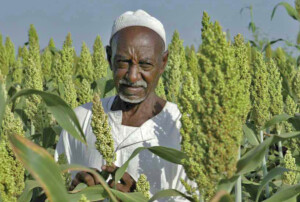
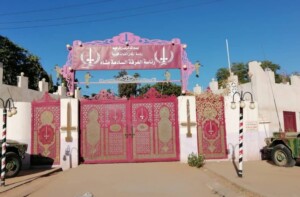

 and then
and then